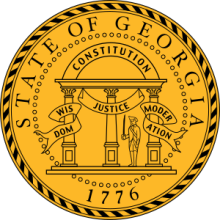Waterloo, Iowa Voters GO Forward with Municipal Fiber Network
After years of consideration and planning, Waterloo, Iowa is finally moving quickly forward with its plan to build a citywide municipal fiber network. Once complete, the network aims to provide the city’s 67,695 residents with an affordable, fiber-based alternative to local monopolized broadband options that have long left regional locals frustrated and disappointed.
Waterloo expects that it will cost somewhere around $115 million to build the necessary fiber backbone and connect all Waterloo residents and businesses to the fledgling network. City officials expect the first customers to go live sometime later this year at up to gigabit speeds, though it will take roughly three years for the entire network to be built.

Much like the rest of the country, Waterloo leaders and residents received a crash course in the importance of affordable broadband during the Covid crisis, when the country’s spotty, sluggish, and expensive broadband networks were on full display due to a massive rise in telecommuting and home education.
Voters Declare GO Time on Muni Broadband
Fueled by frustration, Waterloo voters in September overwhelmingly approved the city issuing general obligation bonds to fund the start of construction for a city-wide municipal fiber network.



